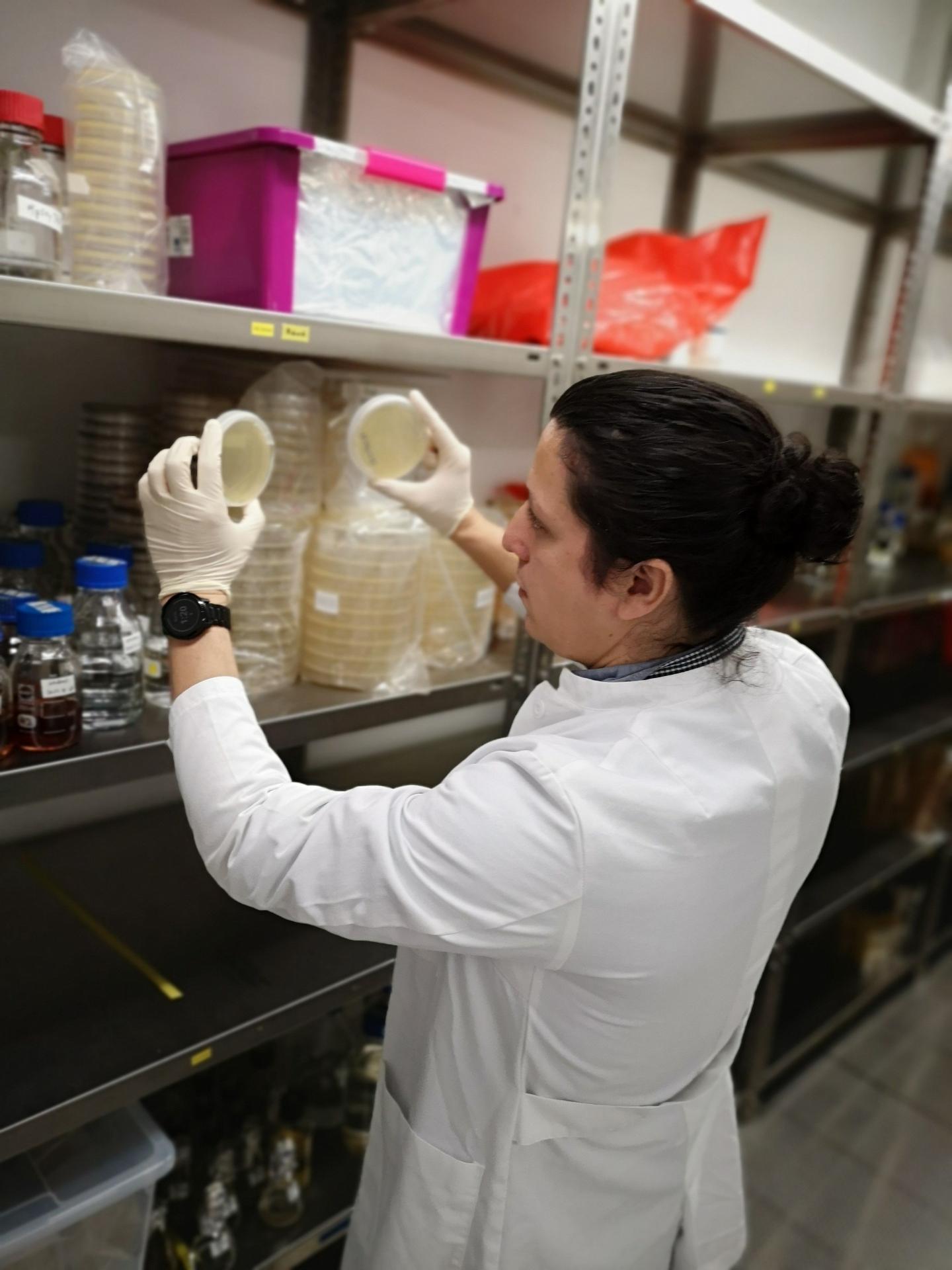Microbiologists at the University of Göttingen develop new phytase screening method

Credit: G A Castillo Villamizar
Phosphate is a key element in many processes in the body and essential for global food production. Researchers at the University of Göttingen have now developed a method to detect new enzymes from the environment that can release phosphate. This opens up new possibilities for the development and optimisation of phytase-based processes for industrial application, biotechnology and environmentally friendly technologies. The results were published in the scientific journal mBio.
Enzymes such as phytases and phosphatases are required to be able to use organically bound phosphate. The research group led by Professor Rolf Daniel from the Institute of Microbiology and Genetics at the University of Göttingen develops standardised methods to isolate novel phosphatases and phytases from complex environmental samples. “The phytases that are currently used commercially, originate from the cultivation of individual strains of microorganisms,” says Daniel. “This wastes the potential to develop new, more effective processes through the use of improved enzymes.” Phosphates are used as fertilisers in large quantities in conventional agriculture. The increasing depletion of natural phosphorus resources and the pollution of phosphorus deposits with heavy metals make new strategies for the extraction and recycling of phosphates more urgent.
The new method is based on the screening of specially constructed gene libraries from the entire gene pool of organisms in different habitats. The researchers take samples from sediments and soil and clone the whole DNA. They then observe which activities develop in these gene libraries. An innovative screening method is used in which phytate serves as a phosphate source. This enabled the researchers to identify the largest variety of phosphatases and phytases ever obtained using functional metagenomics, including new phytase subtypes with hitherto completely unknown functional groups and new properties.
Phosphatases and phytases are natural biocatalysts that play a central role in many metabolic processes and contribute to the release of organically bound phosphate. Phytases are specialised in the degradation of phytates found in cereals and many other plants. They are already used in the animal feed industry as a feed additive to prevent the phosphate naturally contained in plant food from passing unused through the intestines when feeding non-ruminants such as pigs or poultry. Phytases in particular are therefore considered to have great market potential.
###
Original publication: Genis Andrés Castillo Villamizar et al. Functional Metagenomics Reveals an Overlooked Diversity and Novel Features of Soil-Derived Bacterial Phosphatases and Phytases. mBio 2019. https:/
Contact:
Professor Rolf Daniel
University of Göttingen
Department of Genomic and Applied Microbiology
Grisebachstraße 8
37077 Göttingen, Germany
Phone: +49 (0) 551 39-33827
Email: [email protected]
Internet: http://www.
Media Contact
Melissa Sollich
[email protected]
49-055-139-26228
Original Source
http://www.
Related Journal Article
http://dx.




